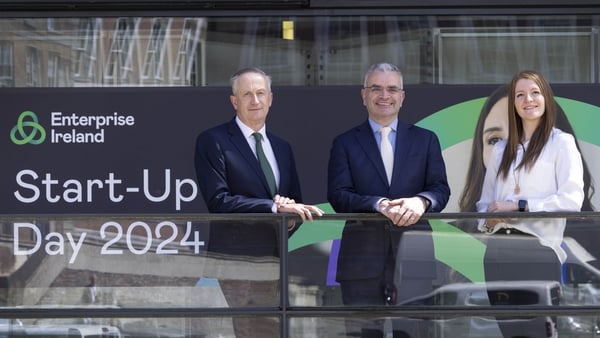John Lewis is making the process of applying for a job with the UK retailer a lot easier by publishing its interview questions online.
Applicants will no longer have to worry about how to prepare for the interview, with the questions "for every role" at the department stores, available "for everyone to see".
The retailer, which also runs the supermarket chain Waitrose, hopes that allowing candidates to see questions before the interview will help them to better prepare and perform at their best, thereby broadening the recruitment pool for the employer.
What does it mean for the recruitment landscape, and could it affect the future of hiring practices?
Sinead Brady, Irish career psychologist believes it's a positive and inclusive move and one that more firms should consider.
Ireland has enjoyed an unprecedented period of jobs growth over the last few years and the unemployment rate remains at near historic lows, giving rise to a tight labour market.
"There is limited predictive ability in interviews with performance. What that means is, the person who performs really well won't necessarily be the best person for the job," Ms Brady said.
Ms Brady said interviews help identify candidates for very specific types of roles, "but an interview is not necessarily the best way to recruit for a dentist".
We need your consent to load this rte-player contentWe use rte-player to manage extra content that can set cookies on your device and collect data about your activity. Please review their details and accept them to load the content.Manage Preferences
John Lewis works with a range of organisations across the UK and partners with them to make sure that they are recruiting the right people into the right roles, across age groups, genders, as well as different backgrounds, some of whom sometimes meet stumbling blocs when applying for roles within organisations.
The interview is often one of the first stumbling blocs, and firms could be missing out on a wealth of talent.
Lorna Bullett, talent acquisition lead at John Lewis, said, "We want the right people, from a variety of backgrounds, with the best talent to join our organisation. It makes absolute business sense to find ways of helping candidates to really demonstrate what they can do."
Previewing questions is useful for candidates who have the potential to excel in a role, but struggle with interviews because they lack confidence or experience.
"Interviews can feel daunting, and for some — particularly those who are neurodiverse — nerves can seriously impact performance," Ms Bullett said.
For some people who are socially adept, strong in the spoken word, work very well under pressure, interviews can be fine, according to Ms Brady.
"But for others, interviews are this absolutely crippling experience. One in which they feel extremely nervous, one in which they find it really hard to think on their feet, and maybe find it very hard to put into words what they are able to do, even though they are brilliant at their job."
She said you could have candidates who are neurodivergent and who are really good problem solvers, brilliant critical thinkers, but who find it challenging to make eye contact or small talk.
The initiative goes further than the required "reasonable adjustments" UK companies must legally make for workers with disabilities or health conditions.
It also builds on a growing trend for firms to adopt inclusive recruitment practices.
John Lewis has said candidates should expect further interrogation in the interview process in "follow-up or probing questions" as well as those that are technical and role specific.
"The process will be no less rigorous," Ms Bullett said. "Interviewers can very quickly get a sense of whether their answers are authentic and based on real experience."






